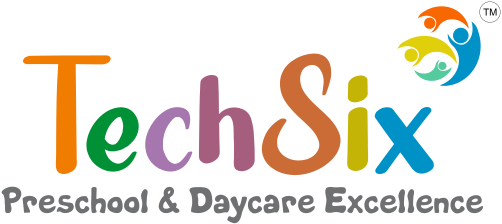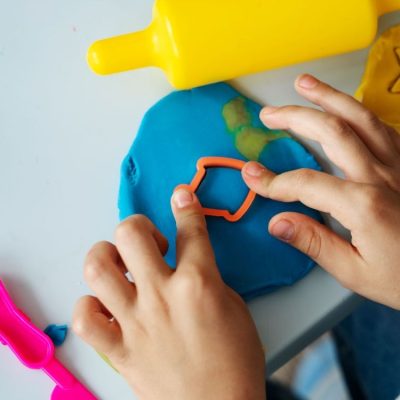When it comes to early childhood education, many parents find themselves faced with a range of myths and misconceptions about daycare and preschool. Whether it’s concerns about their child’s emotional development or fears of poor academic readiness, these myths can lead to confusion and anxiety. But what if the truth is far from what these myths suggest?
Let’s debunk five common myths about daycare and preschool, revealing the valuable role they play in a child’s growth and development.
Myth 1: Children in Daycare Don’t Bond with Parents
One of the most common concerns parents have is that sending their child to daycare will harm the bond they share. There’s a misconception that daycare disrupts attachment, causing children to form stronger bonds with their caregivers than with their parents. However, this is simply not true.
Truth: Children who attend daycare or preschool can still form strong, loving connections with their parents. In fact, spending quality time together at home, engaging in bonding activities after daycare, strengthens the parent-child relationship. Early exposure to social settings, like daycare, actually helps children develop important emotional and social skills, making them more confident and well-adjusted, which ultimately benefits their relationships at home.
It’s important to remember that daycare doesn’t replace parental bonding; rather, it complements it. As children learn independence and how to interact with peers and caregivers, they return home with new experiences, which can enhance the bond you share.
Myth 2: Daycare and Preschool Hinder Academic Readiness
There’s a misconception that children who attend daycare or preschool won’t be as academically prepared for school as children who stay at home. Some parents worry that the focus on play-based learning in daycare environments might prevent their child from developing the academic skills they need. However, this myth overlooks the importance of early learning in a child’s development.
Truth: High-quality daycare and preschool programs are designed to prepare children for school, using structured activities that promote cognitive and social skills. Activities such as reading, math games, and problem-solving are integrated into the curriculum, helping children develop essential academic skills in a fun and engaging way. In fact, research shows that children who attend preschool tend to perform better in kindergarten and beyond, as they have had early exposure to literacy, numeracy, and critical thinking skills.
Moreover, the social skills children develop in daycare—such as sharing, communication, and working in groups—are just as important for academic success. Preschool prepares children not only for the classroom but for life.
Myth 3: Children in Daycare Are Constantly Sick
Another myth that often comes up is the belief that children who attend daycare are always sick due to exposure to germs and illnesses. While it’s true that young children in group settings may initially experience more illnesses, this myth tends to be exaggerated.
Truth: It’s common for children to catch a cold or other minor illnesses when they start daycare, simply because their immune systems are being exposed to new environments and germs. However, this initial phase is temporary. Over time, children build stronger immune systems, making them more resilient to infections. In fact, research shows that children who attend daycare or preschool are less likely to suffer from more serious illnesses later on in life.
What’s more, the benefits of being in daycare go far beyond illness. Children in daycare are exposed to a variety of activities that encourage physical development, such as outdoor play and group games. These activities contribute to a child’s overall well-being and help build their immunity in the long run.
Myth 4: Daycare Staff Can’t Provide Individual Attention
Many parents worry that daycare providers won’t be able to give their child the individualized care and attention they need, especially if the daycare is large. This myth assumes that children will be just another face in the crowd. However, this is not the case in most reputable daycare centers.
Truth: Reputable daycare centers and preschools understand the importance of providing personalized care. They maintain low child-to-teacher ratios, ensuring that each child receives adequate attention. In fact, quality daycare providers focus on creating environments where children feel seen and heard. Staff members are trained to recognize each child’s unique needs, whether it’s for extra encouragement, academic challenges, or emotional support.
Daycare and preschool teachers spend time observing and understanding each child, which allows them to tailor activities to suit the child’s developmental stage and interests. This individualized attention fosters a nurturing environment, helping each child thrive at their own pace.
Myth 5: Daycare Is Just Babysitting
A common myth about daycare is that it’s simply a place where children are “watched” while parents are at work. Some people believe daycare is just about keeping children occupied, without focusing on their development. However, this couldn’t be further from the truth.
Truth: Quality daycare and preschool programs are structured learning environments where children engage in activities that promote growth in all areas—cognitive, emotional, social, and physical. These programs aren’t just about babysitting; they are about providing children with age-appropriate educational experiences that foster a love of learning. From reading stories and singing songs to engaging in hands-on activities, preschool is an essential part of a child’s development.
The activities offered at daycare are designed to encourage exploration, problem-solving, creativity, and social skills. Through these experiences, children develop the foundation they need for lifelong learning, making daycare and preschool crucial for their development.
TechSix – Preschool & Daycare Excellence
TechSix is a premier preschool and daycare that blends early education with creativity and care. Committed to nurturing young minds, TechSix focuses on developing essential skills such as cognitive, emotional, and social growth through engaging, hands-on activities. Their dedicated team of educators provides personalized attention, ensuring each child’s unique needs are met. With a safe and stimulating environment, TechSix – Preschool & Daycare Excellence creates a foundation for lifelong learning, making it an ideal choice for parents seeking quality early childhood education and care.
Preschool Admissions are now open for the 2025-26 Academic Session!
Wrapping Up
In conclusion, while there are many myths surrounding daycare and preschool, the truth is that these early learning environments offer invaluable benefits for both children and parents. With structured routines, qualified educators, and opportunities for socialization, daycare and preschool contribute to a child’s cognitive, emotional, and social development. They provide a strong foundation for academic success and personal growth while helping children adapt to group settings. Additionally, daycare and preschool offer peace of mind for working parents, knowing their child is receiving quality care and attention. Far from the myths, daycare and preschool are essential stepping stones for a child’s future, making them an excellent choice for families.
Don’t miss: What Are the Age Criteria for Nursery Admission in Gurgaon 2025?





